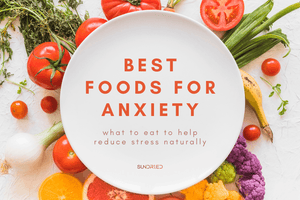
What is gluten? What is a gluten-free diet? Why is it bad for some people?
New research by YouGov has found that as many as 60% of adults in the UK have bought a gluten-free product, whilst 10% of households contain someone who believes gluten is bad for them. But what actually is gluten? And how can it affect our health?
What is gluten?
Gluten is actually a protein component and is commonly found in wheat, barley, and rye. It is made up of two forms of proteins: gliadin and glutenin. When these cereal grains are mixed with water, the proteins in gluten form a sticky texture with a glue-like consistency and this is how soft, doughy foods are made. The glue-like property of this mixture is what makes the dough elastic and gives the chewy, stodgy texture. The name gluten is derived from the fact it is glue-like in texture.
Why is gluten bad for some people?
Most people will not suffer any negative side effects from eating gluten. However, some people suffer from gluten-intolerant diseases, the most notable being coeliac disease, and this can cause them some distress if they ingest the protein. Coeliac is a fairly common digestive problem whereby the small intestine becomes inflamed and unable to digest any nutrients. Those who truly suffer from a gluten intolerance may become seriously ill after consuming it. Most people who think they have a gluten intolerance just become bloated from eating too much and stretching the stomach, and confuse this for a real illness.
Will gluten-free make you lose weight?
No, it won't. Removing gluten from your diet and eating special gluten-free products will not help you to lose weight as it does not affect the calorie balance of your food intake. In fact, many gluten-free foods still contain a high number of calories, sugar, and fat, and so by thinking it's healthy and eating more, you're actually likely to gain weight. If you don't have a diagnosed condition, you don't need to eat gluten-free foods.
Who should go gluten-free?
If a person suffers from coeliac disease, eating a product containing gluten means their body physically cannot digest it and it triggers their immune system to start damaging their small intestine. Gluten does this to a coeliac by destroying their villi. Villi are tiny protrusions which line the intestine and transfer essential nutrients into the bloodstream. Once the villi are damaged, a person will become malnourished, regardless of their food consumption, as their body simply cannot absorb the right nutrients from what’s being ingested. Coeliac is a serious disease and so you would know if you have it. If you're not sure, it can be diagnosed with a blood test. Those with coeliac disease must avoid gluten in order to stay nourished and healthy. Those without this disease have absolutely no reason no to eat gluten, and if they are becoming bloated often, this is probably due to something else.
Important facts about coeliac disease
- Coeliac UK found that the disease affects only 1 in 100 adults in the UK.
- Coeliac disease is not an allergy or an intolerance, it is an autoimmune disease.
- You cannot ‘grow out’ of Coeliac disease, it is a lifelong disease.
- As little as a breadcrumb of gluten can harm someone with Coeliac disease.

































